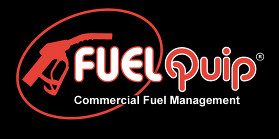The Different Considerations That Must Be Made When Designing Diesel Fuel Management Systems
The storage, sale, disbursement and management of fuel are all very complex processes. Given that most fuel types are highly combustible, there are also a number of safety concerns involved in these efforts as well. Following are several important considerations that must be made when diesel fuel management systems are designed and incorporated.
From the safety perspective, combustion is always one of the greatest fears. This is why regulatory bodies make it mandatory for all parties to store these solutions in industry-specific containers that have the proper specifications. Poor storage can lead to problems with leaks and other forms of spillage that will greatly increase the likelihood of combustion-related developments such as explosions and fires.
The location of these systems is also a key concern. According to most municipal regulations and regulatory bodies, it is not possible for companies to set fueling stations and fuel storage stations up in areas that are close to natural or man-made bodies of water, or drainage systems. If spills do occur, these authorities want them to have the most minimal impact on local water supplies as possible.
Forestry is also something that companies must be cognizant of when choosing these system. If these stations are too close to heavily treed areas, many different forms of wildlife could be placed at risk. This is just as true for combustion-related incidents as it is to water contamination and soil contamination.
Companies need to have clearly defined plans for dealing with spillage and other disasters. This should also be reflected in the fuel management equipment that they use. Among some of the elements that are necessary for these systems are emergency shut-off valves and audible alert systems.
Dispensation or disbursement is a critical factor to account for when choosing, designing or implementing a management system within this field. How fuels are disbursed can play a major role in minimizing the frequency or risk of spills, leakage, and other problems. In most cases, managers are required to order and use electric pumps.
When manual pumps are essential due to lesser budgets, or insufficient or unaccommodating spaces, then different protocols for ensuring continued safety must be applied. When shopping for equipment for these purposes, establishing management plans or setting systems up, companies can give themselves the best level of protection by working with compliance consultants. These are professionals that can make sure that all aspects of these efforts are fully compliant. This includes identifying the right specifications for equipment, and choosing the right location and having it properly installed. A good consultant will be able to provide end to end solutions and support.
Cost is obviously a key concern when establishing protocols and determining which products and tools are essential for maintaining a safe and simple program. It is vital to note, however, that the costs of non-compliance can be significantly larger. Moreover, establishing a quality system can help companies sidestep a number of expensive liability issues within both the public and the private sectors. This means that the money that you pay in terms of ensuring compliance and maintaining it are an investment that is definitely going to pay for itself.


